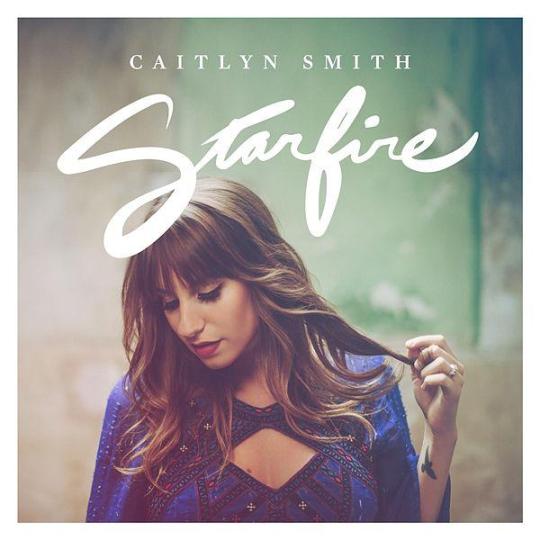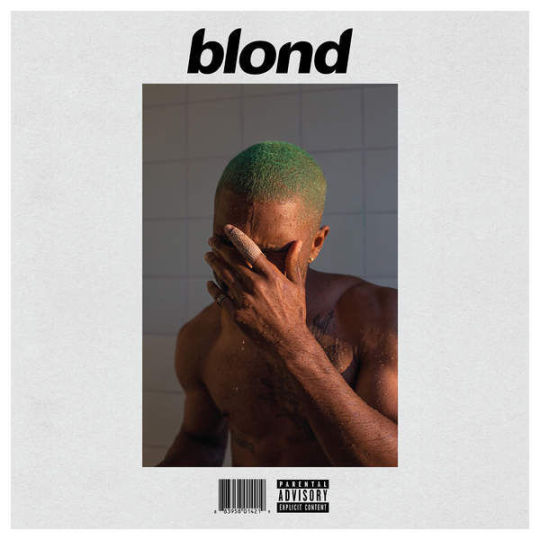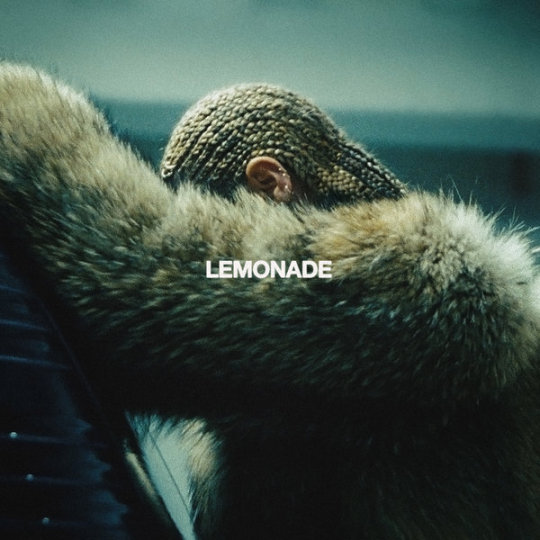#i watched the entire episode with the school nurse specifically to write like two lines of dialogue for her
Explore tagged Tumblr posts
Text

"baby steps"
💘 craig tucker x tweek tweak (creek) 💘 2.3k words 💘 i have an EXTREMELY specific vision for how their first kiss happens, so i had to write a fic about it
🔗 https://archiveofourown.org/works/47738821
#tweek tweak#craig tucker#sp creek#my writing#i wrote this all in one sitting lol#i watched the entire episode with the school nurse specifically to write like two lines of dialogue for her#my dedication to the blorbos is important
14 notes
·
View notes
Text
Autism in Fiction (How Sherlock could do better)
So I wrote a review of the last episode of Sherlock and it was a negative one. I made my case about why I stopped watching it, in the hope of explaining why I don’t want to associate it with my own Sherlock Holmes work.
In this review I said, “I do not appreciate the use of autistic/bipolar characteristics as indicators of villainy. The “lack of empathy”, “trouble reading feelings”, “repressed emotion”, twitching movement reminiscent of stims… I could go on. The way disability was presented in the episode was nothing less than offensive.“
I’ve been asked to elaborate by @hoegarthhh and @amazing0209, who asked:
I just want to understand your reasoning of concluding that euros was autistic rather than a psychopath. Because every aspect of her personality clearly points to psychopath. Because it was stated she cannot feel pain. Something autistic people can.
It was hard to come up with a neutral response, especially considering this reply below which was far less diplomatic/ far more aggressive.
In no way is she autistic. I cannot believe you actually misdiagnosed her so severely. She is obviously a psychopath. It was stated multiple times how she cannot feel pain nor emotion. In what way is that connected to autism. Also Psychopaths are related to having anti social disorder which makes them a threat to society.
It upset me that you completely refused to acknowledge my point, but more so that you assumed I do not know my own feelings about my own condition. I am autistic, along with my dad and brother, which I mentioned at the very beginning of my review. If I recognise “autistic characteristics” in a character (note I did not say she is autistic, but that her character is coloured by behaviours associated with autism), that comes from a place of experience.
But this made me think about how my feelings on the matter are not enough, so I compiled some research I’ve put together that debunk the ideas that there is no overlap between psychopathy and autism, the harm that the “evil psychopath” idea does, and just general considerations writers should think about when writing autistic character.
Oh boy, this about to get long so buckle in. (Also I would like to disclaim that while I am heavily involved in research of these things, I am by no means an expert.)
THE SPECTRUM: NO TWO AUTISTIC PEOPLE THE SAME
So when we talk about autism, we say that people fall somewhere on the “autistic spectrum”. It means that while there are some area’s where autistic people overlap, primarily in their ability to perceive the world and their ability to interact. However, there are dozens of ways autism can effect people but it doesn’t effect all people with autism. (Think of it the way that all buses are vehicles, but not all vehicles are buses.)
Take my brother, his school friends, my dad and myself.
My brother was diagnosed with autism very young, due to learning difficulties and noticeable delay in social awareness. Physically his development was technically above average and he has a huge capacity for imagination, but he is unable to do things like travel independently due to his reliance on routine. He “stims”, which means a repetitive movement/twitch that keeps him calm.
Many of his school friends (at his specialist school) have physical or communication issues. Some have weak muscle development, or are non verbal (can’t speak). Like my brother, they rely on routine. Some have sensory issues, finding uncomfortable sensations like a tag in their clothes completely overwhelming.
My dad wasn’t diagnosed until his middle age. He was diagnosed (though with caution) while they were helping him with his bi-polar. He has “special interests” or obsessions which take prime importance in his life, but his main indicator was his low scoring sense of empathy. (Take note of this: it is important to my points later.)
I was only formally diagnosed around two or three years ago, after having to wait a long time to get a diagnosis appointment. (Separate rant, but they diagnosed me from things that have been in life since I was born when I was 18?) I also have repetitive behaviour, reliance of routine, several social anxiety and special interests (Sherlock was one of them).
However, being a woman with autism complicates the understanding of it. This is due to a pattern within women of “learning” social etiquette. Empathy may not come naturally, but you learn what people do in certain situations that call for empathy. This is not entirely absent in men either, but social pressures upon women are present from a younger age. Due to a absence of understanding that women can be autistic, women suffering from autism often suffer from depression as they think are “crazy” for finding social things unsatisfying/hard. (Think of Euros from Sherlock here, I’ll elaborate later.)
There is a way of discussing this different areas that illustrate a person’s place on the autistic spectrum, called the The Triad of Impairments.
THE TRIAD OF IMPAIRMENTS: LIKE THE TRIFORCE, BUT... SOCIALLY ANXIOUS
So your place on the Spectrum shows in how highly you score in these different areas.
Social Communication: This is mostly to do with being able to speak/understand verbal conversation, but also includes a difficulty reading facial expressions, body language, and expressing their own feelings.
Social Interaction: This is social behaviours that often come across as rude, like avoiding eye contact, showing no interest in other’s opinions, and a lack of awareness of other’s feelings.
Social Imagination: This is about difficulty predicting behaviour and working with abstract ideas. This includes a lack/absence of empathy, problems with change, repetitive behaviour and a minimal concept of danger (doing things like running across roads without taking time to be safe.)
So every autistic person ranks somewhere in one of these as a minimum. I have issues mostly in social interaction, after a long time of therapy to improve social communication. My brother ranks highly in all three. My dad is entirely in the social imagination part.
SO WHAT DOES THIS HAVE TO DO WITH SHERLOCK?
Oh yeah, this was about Sherlock, wasn’t it?
Sherlock is one the main characters cited when people discuss possible autistic characters that are undiagnosed/good role models. This isn’t a hypothetical thing: it was actually an interpretation that made me interested in Sherlock Holmes in the first place. Using what I’ve discussed here, you can see it.
SHERLOCK: Has trouble expressing his feelings, often comes across as rude due to ignorance of social expectations, doesn’t care about opinions of others, often lacks empathy (except for those they are close with), minimal concept of danger, special interest (criminology, violin, chemistry).
The show says he has it, in a passing and underwhelming way. That in itself is disappointing, and hardly representation when it is thrown out in the same way a joke would be. When you apply the same idea to Mycroft, you get the same result, perhaps even more present due to his heavily introverted social life. For Euros, I see this:
EUROS: Difficulty reading body language (unsure if a nurse was male or female), often lacks awareness of the feelings of others, has an absence of empathy, has issues with changes to her sense of order, twitches (like stims), special interests (violin, her brother), and minimal concept of danger.
I agree that psychopathy is a legitimate reading of her character. But that is also a spectrum disorder. I believe that Euros is complicated by the fact that many of her cruel actions are out of design to frighten people. The plot tries to justify her cruel treatment by calling her “a psychopath” so it’s ok to throw her in prison.
However, the show goes out of the way to establish that she is never formally analysed, that she is socially isolated and that she is built up to have “mind control” powers. It makes her pretty much a supernatural monster, like a demon summoned from hell.
As a child with such huge mental illness issues, isolating her would be nothing less than needlessly cruel. As mentioned, women with autism cope by “learning” social behaviours, even if they don’t understand them. Even if she is psychopathic, removing her from people at a young age would ruin her social development even further. At the age of eight, cutting her off from social interaction would only make these social problems worse.
I take issue with the show’s treatment of disability on the whole, regardless of my own specific moments. John’s PTSD is inconsistent at best, and throwaway at its worst. (I don’t know enough about PTSD to discuss this in detail, but the fact the cane reappears in S4 after a three series absence makes the vanishing limp painfully obvious.)
Euros being somehow able to control people’s minds due some vague mental illness (be it psychopathy, autism, bipolar, whatever) makes the mentally ill into some “other” thing which should be considered evil. Moriarty being a victim of twitchy mood swings is part of this stereotyping of mental illness characteristics with evil.
Sherlock being autistic only as a throwaway line was depressing: how hard would it be just to say “yes, he’s autistic” and have him be an appealing protagonist? That would mean the world to me. But all examples of people being neuroatypical are negative, and it makes me feel isolated from something I should love.
Basically, don’t write characters as mentally ill unless you’re prepared to fully consider the implications of what you’re writing. Research the context of your own piece (Sherlock having such a strong connection to autism anyway), research the issues of the mental illness’s presentation in media, RESEARCH MENTAL HEALTH FROM THE VIEW OF THE MENTALLY ILL.
SOURCES:
http://www.autismbedfordshire.net/about-autism/triad-of-impairments/
http://www.autism.org.uk/about/diagnosis/criteria-changes.aspx
http://www.autism.org.uk/about/what-is/asd.aspx?gclid=Cj0KEQiAzZHEBRD0ivi9_pDzgYMBEiQAtvxt-AEZgrk7_4i_XCunTKJIzH2BVol1TE6d-YFwrFOjTL8aAuUS8P8HAQ
http://www.autism.org.uk/about/what-is/myths-facts-stats.aspx
https://www.psychologytoday.com/blog/brainsnacks/201110/did-sherlock-holmes-have-asperger-syndrome
https://www.psychologytoday.com/basics/psychopathy
https://www.youtube.com/watch?v=lIlm5MyZTlM
158 notes
·
View notes
Photo










Here we are - the top ten songs of 2016 Again, women continue to dominate this year’s list, with half of the top ten songs performed by female artists. These are the songs that have dominated my ears for the entire year and I contend that they are all intricately crafted slices of musical genius. Even if you don’t love every single track, I hope you can find some joy in this list.
10. Maggie Rogers – “Alaska”
The launch of this song’s popularity is likely unprecedented even in today’s sonic landscape, obsessed as it is with viral hits and internet culture. She was lucky enough to have a Masterclass with Pharrell Williams while she was at NYU, and played the unfinished version of this song…to his immediate and obvious delight. He called her sound “singular” and had no criticism for her whatsoever; the most impressive part was that she wrote it in 15 minutes and recorded it the same day with her co-producer Doug Schadt, also an alum of the Clive Davis Institute. There’s a real coming-of-age tone to the song, discussing a break up and life transitions in a way that comes across more as hopeful than melancholy. The production is clearly electronic, but grounded, as she utilizes natural sounds to construct the instrumentation. There is simply so much to enjoy in this track, from the harmonies to the lyrics to the, yes, singular arrangement. Here’s hoping she continues to surprise us with her EP, due this spring.
9. Foxes – “Scar”
Louisa Rose Allen – better known by her stage name Foxes – isn’t particularly well known in the States. That didn’t stop her from releasing one of the most underrated pop albums of 2016 with All I Need. Her vocals are simultaneously raspy and soaring, with the driving beat in the production instantly catchy, but the lyrics are what truly stand out. I briefly dated someone back in June of 2015, and it ended abruptly when he got upset one night and threw me against a wall in his house. Besides the trauma of the incident itself, it brought up a lot of painful memories from my childhood, and it was difficult for me to move past the incident. I don’t think I realized how much I needed an outlet for that anxiety until I heard this song. Allen uses the scar as a metaphor, of course, but it resonates for so many people who have some relationships they may regret in their past. With a chorus of “Now you're just a scar, a story I tell/Such an ugly mark, but I wear it so well…Now you're just a scar/A time that I fell for someone who didn't love me well,” she turns an experience that can be upsetting and shameful into a source of strength. She seems to be telling the listener, “You got through this, and it made you better.” I know I, for one, needed that.
8. Bob Moses – “Tearing Me Up (RAC Mix)”
If you’re ever looking for a solid Canadian electronic duo, then these guys should be on your list. Tom Howie and Jimmy Vallance attended middle and high school together in Vancouver, but were merely acquaintances until they both got into the New York music scene and ran into each other at a hardware store. They combined their two musical scenes – rock and trance – to work on their own alternative electronic sound together. The original form of this song, released on 2015, was nominated for a Grammy in the dance genre. Released in February of last year, the RAC remix of the track scored an eventual Grammy win at the 2017 ceremony; once you listen to it, it becomes quite obvious why the remix was necessary for the win. The remix cuts over two and a half minutes from the running time, streamlining the arrangement and focusing more on the vocals. Percussion and guitar hit you from the first note, and you get to the lyrics within the first 20 seconds. Portland resident André Allen Anjos – also known as RAC – adds radiant synths and some gorgeous finger basses, creating a lush atmosphere for the arrangement, and expanding upon the initially minimal track. The end result is nothing but exquisitely crafted music. You’ll forget what the world was like before you heard it, because this is one that stays with you forever.
7. Hamilton Leithauser + Rostam – “In a Black Out”
Rostam Batmanglij is an alumnus of Vampire Weekend who has been making a name for himself as a producer (you may have heard some of his work on Carly Rae Jepsen’s last album). Last year he teamed up with Hamilton Leithauser, the frontman for the Walkmen, and the result was lightning in a bottle. The two men worked together to fashion this slice of brilliance, which opens with an undulating Spanish guitar and even utilizes a small church choir to add a haunting backing vocal about ninety seconds from the start. The last minute of the song is nothing but pure joy, as Leithauser shows off his true range, crooning over an outstanding drum loop and that same guitar that seems so vintage and so perfect at the same time...at no point do they slip into pastiche of any kind. Both men are paying homage to decades of musical history while still creating a sound that is entirely their own. There’s a timely narrative to the song, telling the story of returning to an old town and the old lover that may accompany it. Some of the lyrics touch on the nostalgia of both experiences, with lines like “Midnight where we used to dance/Underneath the ugly halogen lamps/Oh, it all went away so fast/In a black out.” Few people of my age can listen to this and not feel a thing.
6. Caitlyn Smith – “This Town is Killing Me”
I connect with Caitlyn Smith on so many levels, what with her home state of Minnesota and her obsession with Patty Griffin leading her to Nashville by the age of 18. She performed at a few gigs in Music City but set her dreams aside for a bit when she signed a contact to write songs for other artists. There’s a versatility to her voice that makes her sound like no one else on the radio – country or otherwise. There are flashes of Allison Krauss on this vocal, but so many other artists, too. The vocal track is clearly meant to sound raw, emotional – genuine, in other words. Smith writes for herself in a way that I haven’t heard from other artists in Nashville or anywhere else, for that matter. She focuses on the soul-crushing side of the industry that is all too often pushing dreams of whiskey and honky tonks down our throats. Smith pens a poignantly devastating letter to Nashville, admitting defeat at the feet of a city and an industry that moves on without you. She sings of missing her grandfather’s funeral, of losing the only man she ever loved to her career, of pouring her heart out over the mic only to have the audience ignore her. As she notes in the lyrics, “no one's listening, they're too busy drinking on the company tab.” “This Town is Killing Me” is produced perfectly in a minimalist way, building ever so slightly with a slide guitar, a small strings section, and a piano to accompany her acoustic guitar; it’s clear, though, that her voice is the focal point. Perhaps the toughest part of the song is when she comes clean to how much pain the town and the job have caused her, but admits she’ll get up tomorrow and do it all over again. Several other artists may have won the attention last year, but Smith wrote the best song in country music. End of story.
5. weslee – “Gassed”
If you aren’t watching You’re the Worst, you’re not only missing out on some of the best television available anywhere in the world, you’re now missing out on some of the best music, too. There is so little known about this duo that the mystery and anonymity that surrounds them only adds to the allure. Josh and Emma (the former American, the latter English) named their duo after her pet turtle, and their first real splash was the track “Gassed,” which was looked up on Shazam over 5,000 times the night it debuted during the end titles of an episode of You’re the Worst. According to an interview on BBC a week ago, Josh claims an EP is in the works, but most of us are content to simply play this on repeat. The track is incredibly atmospheric, utilizing a hypnotic production that slowly builds anticipation through rolling crescendos that peak at each chorus. This is a song that comes across as deceptively simply, luring you in with its seductive beat, captivating vocals, and sultry synth loops. The song’s protagonist is clearly overwhelmed with her current situation, singing about changing the flow so she has the space to grow, about finding her way back home. There’s a stasis on display here, as she so clearly wants to get back home, but questions whether that’s the right choice. The entire song is electronic, but with such a grounded and quiet style, you could play it at the local nursing home and find some new fans. I sincerely hope Josh and Emma, regardless of their identities, bless us with some more brilliant music soon.
4. Ramin Djawadi– “Light of the Seven”
Of all the shows to discover mind-blowing music, I never usually think of Game of Thrones as a likely source. “Light of the Seven,” from the show’s resident composer Ramin Djawadi, is the first track in its six-year history to ever feature the piano. Along with an organ, a small string section, and two boys’ vocals, Djawadi arranges the piano and the notes to slowly build the anticipation in what can only be considered one of the best sequences in the history of the program. Djawadi explicitly wanted to tease out the tension and the mystery of the finale’s sequence, and utilized only two voices to make the environment of the song seem smaller and more intimate as the characters explore the catacombs of King’s Landing. Over the course of almost ten minutes, the song helps guide the audience through several scenes mostly absent of dialogue, accentuating specific moments with perfectly timed notes, and intensifying the strings to serves as almost a countdown to a massive climax at the end. Listeners who are paying attention will notice the recurring motifs from the theme of the show itself throughout the arrangement. With so much happening onscreen, the composition expertly weaves you in and out of multiple storylines that ultimately tie together through one character’s machinations and the brilliant work of Djawadi himself. One thing I’d like to note: “Light of the Seven” tracks in at nine minutes and forty-nine seconds, and I have listened to it over 350 times since last summer. That sums up the virtuosity of this song.
3. Kanye West – “Famous”
2016 was, for the most part, a complete and utter shitshow. That said, one of the few bright spots for me among the carnage was the one-two punch of this song and the blow Kim Kardashian delivered to Taylor Swift in front of the entire country. As Janene Garafolo would say, “The word ‘vivisection?’ A staggering understatement.” The ensuing controversy of Taylor’s mock outrage, unfortunately, nearly overshadowed the skill that ‘Ye showed off with this track. He’s showcasing Nina Simone (with Rihanna’s vocals and the original singer herself), as well as Jamaican legend Sister Nancy, Italian band Il Rovescio Della Medaglia, and hip hop artist Swizz Beatz. It is clear to anyone that he’s a genius provocateur, but also knows how to put a song together, and, along with other album highlights like “Ultralight Beam,” came back in 2016 with both arms swinging. As Pitchfork noted when it comes to his work with Sister Nancy’s “Bam Bam,” the clip “sounds like a dancehall remix of Pachelbel's Canon, and it's the most joyful two minutes of music on the album.” Kanye is upending expectations, undercutting the concept of celebrity, and giving you a banger all at the same time. Regardless of the controversies that constantly swirl around him – many of his own making – it remains clear that Kanye is one of the best artists out there, and this track more than proves it.
2. Frank Ocean – “Self Control”
I consider these top three songs to be a trifecta, a package deal that all build on each other, though only one can reign as the best of the year. Frank just missed out on the top spot this year (which he held in 2012 with “Thinkin’ Bout You,” by the way), but the perfection that was his latest album fought until the very end. Ocean along with Jon Brion and James Ryan Ho – better known by his stage name Malay – collaborated to produce this track and the despondency on display may as well be in 3D. There is a longing present in the song that wasn’t captured as well by any other artist in 2016. He starts with the braggadocious “I’ll be the boyfriend in your wet dreams tonight” but eventually collapses in on himself, hoping to be involved even if it means literally inserting himself into a new relationship, singing “Keep a place for me, for me/I'll sleep between y'all, it's nothing.” He begs to be reintroduced to his ex’s life, even devolving into looped vocals for the end of the song, pleading to have just one more night with this mystery man. There is a tragedy contained within the lyrics “Know you got someone comin'/You're spitting game, oh you got it” that I literally cannot articulate in words. There is a sense that he has been tossed aside, that he no longer matters, and Ocean capitalizes on what amounts to so many people’s biggest fear – that we will leave this life without making an impact. The desperation here is universal, and not limited to solely one relationship. It’s meant to encompass the meaning of our entire life.
1. Beyoncé – “Formation”
I have to be perfectly honest here – was there ever any fucking doubt? When you’re Beyoncé, you can drop a song on Saturday, perform it at the Super Bowl on Sunday, and the entire country already knows every single world. As Ashley Weatherford noted after its release last February, “Formation” is the blueprint to being “unapologetically black.” In a country that is, arguably, irreparably divided, Beyoncé planted her flag on the hill of her identity as an African-American woman, and could not care less if it leads to a backlash. She has faced criticism for years for being a bad feminist or not caring enough about Black Lives Matter, and this song is, in essence, presenting two middle fingers to the world as her response. When you’re the biggest star in the world, you don’t have to apologize anymore. Every single line of this track is crafted to highlight, as Dee Lovett put it, Black Girl Magic. This song is meant to embrace and to celebrate a group, a culture, a gender – an identity – that has been ignored for so long. The beat is inspired, utilizing an unnerving trap production that builds to a marching band in every chorus while also nodding to the Southern Gothic feel of the entire track. As Rembert Browne noted, this song is a reminder of Beyoncé’s core identity; “I’m a woman and I’m black, but also I’m a black woman — please don’t ever forget that, and no, you can’t touch my hair, not never.” It left an indelible mark on the entire year, and by my account, was easily 2016’s best song.
#Music#Best Songs of 2016#Best of 2016#Maggie Rogers#Foxes#Bob Moses#Hamilton Leithauser + Rostam#Caitlyn Smith#weslee#Ramin Djawadi#Kanye#Yesus#Kanye West#Frank Ocean#Beyoncé#Beyonce
0 notes